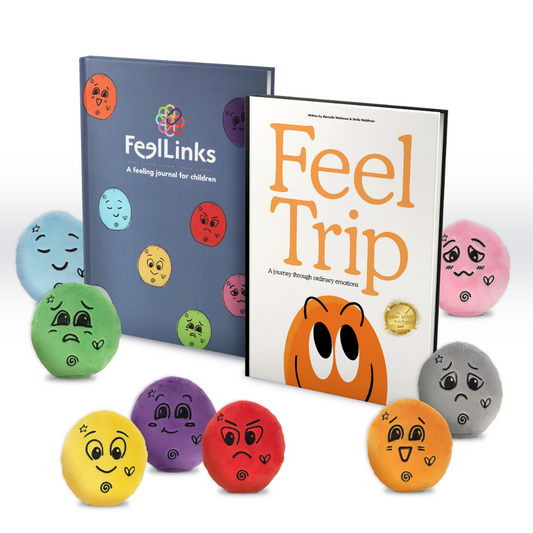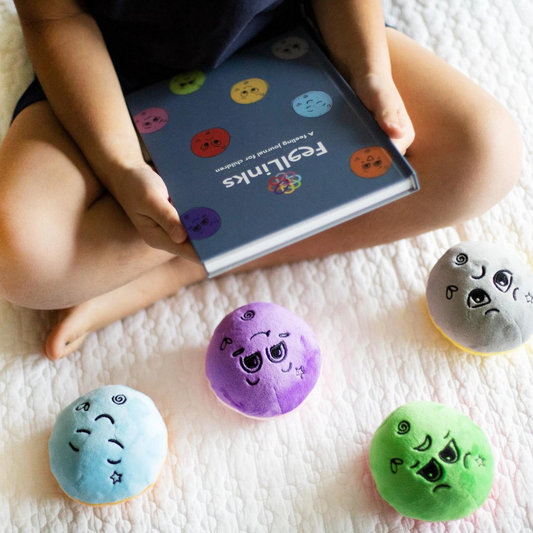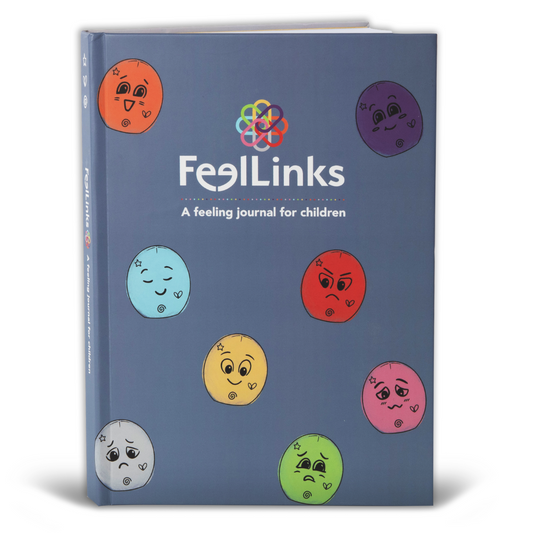Supporting Children Through Traumatic Events
Share

"Perhaps the butterfly is proof that you can go through a great deal of darkness yet become something beautiful." -Beau Taplin
According to the Oxford Dictionary, trauma is "a deeply distressing or disturbing experience." Children are vulnerable to trauma, it can occur in many ways, including: accidents, death, illness, a pandemic, crimes, acts of violence, natural disasters, or other troubling events. Kids can even experience trauma from events that they are not directly connected to but have exposure to on the news or radio. With the appropriate adult support, children are able to recover more quickly from a traumatic experience.
When a traumatic event occurs in a child’s life, it’s important that we respond with safety, comfort and validation. Adults will need to help the child manage extremely tough and often intense, and even frightening emotions. We must help our children feel safe by listening to their feelings, questions and concerns. We will need to keep communication open, validate their feelings, and finally, help them recover using healthy coping skills.
How can adults help children cope with traumatic events?
It’s important to remember that the tips and suggestions below do not replace that of a doctor or other healthcare provider. Seek professional care whenever you feel it is warranted.
- Safety: Help your child feel safe by letting them know you are there and let your actions show them. Whether they like hugs, cuddling, or reading books together, show them safe and secure.
- Listen: You will want to listen, listen, listen. Ask questions when you feel it's necessary. Let your child express their feelings and communicate as needed.
- Validate all feelings: Let your child know that all of their feelings are valid. Respond with calm and care.
- Maintain routines: When traumatic events strike, our regular routines can be thrown for a loop. Do your best to maintain routines for bedtime, meals, and school.
- Play, play, play: Play is our children’s love language. Play family games, encourage them to continue on with the activities that they love – art, baking, biking, soccer, dance, hiking, etc. These are good distractions that are often needed.
- Limit or inhibit news exposure: Depending on your child’s age and developmental readiness – news coverage is something that you will want to completely inhibit or at least keep to a minimum. Just as we, adults, can fixate on hearing about events on the news, this can happen to our children and it is not healthy for their young minds.
- Open communication: Always keep the lines of communication open. Let your child know that they can talk to you whenever they need. Be honest, but keep information brief. It's okay to say, "I don't know."
- Coping can look different: Each child is unique and will need different things. Some children will want more family time; others will want less. Some will choose more friend time; others will choose less friend time. Feelings will be expressed in different ways; some children will cry, others will show rage or feel guilty. Don’t have an expectation of how coping will look for your child.
- Relaxation techniques: Help children find time for relaxation; resting the mind and body is very important after a traumatic event. Try deep breathing techniques, listen to calm music, or try yoga or other stretching.
Tips for supporting recovery from trauma: *This is for educational purposes and not in place of a trained healthcare professional's opinion on one's personal circumstances.
- There will continue to be persistent curiosities from your child. Be there to answer what you can. Do not be afraid to let your child know if you do not know an answer.
- Family discussions should continue to be open and safe. When your children realize you have similar feelings about a traumatic event, it helps them share their feelings more opening and realize that what they are feeling is “normal.”
- It’s a good time to lower some expectations in areas such as, school, household chores, performance in activities and other areas.
- Some children may require more support and help than others that have experienced trauma. Children that are neurodivergent or have other special needs, may need even more supports in place to assist in recovery.
- Adults, you will need to practice self-care during this difficult time. You will be at your best for your child if you take care of yourself. Eating, sleeping, physical movement, and hydration are extremely vital to your own mental, physical and emotional health.
Remember to seek help from professionals. Family doctors or mental healthcare professionals are the experts in how to help your child through such difficult circumstances. Here is a limited list of what you might see in a child experiencing trauma: crying, clinginess, anxiety, sleep disturbance, anger, aggression, extreme mood swings, fear of the future, academic disturbances, social withdrawal, toileting disturbances, tantrums, and reverting to early behavior such as thumb sucking. There is much more to this list and none of this information is in place of your intuition as a parent, caretaker or educator – nor is it in place of a healthcare providers professional opinions.
"Perhaps the butterfly is proof that you can go through a great deal of darkness yet become something beautiful." -Beau Taplin
With gratitude and heartbreak 💔 -
🧡Marcelle






1 comment
This is so incredible. Beautiful, helpful, thoughtful and practical!! Feellinks is a bright light for dark times!
Thank you